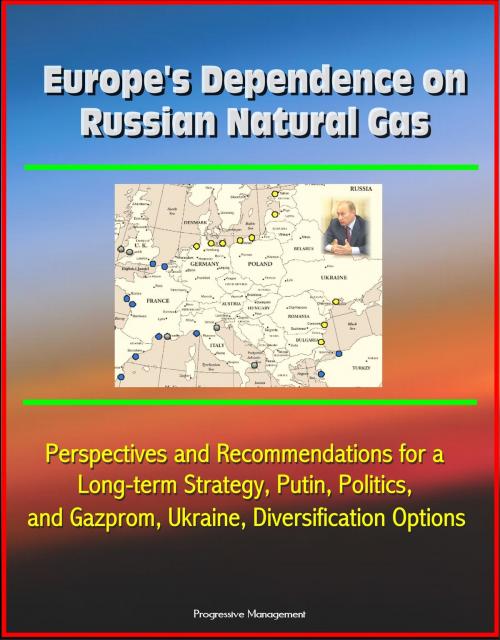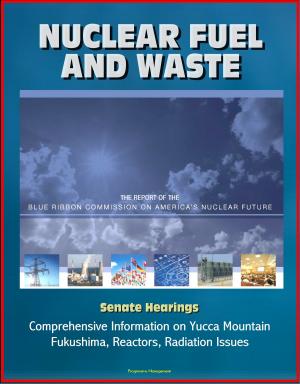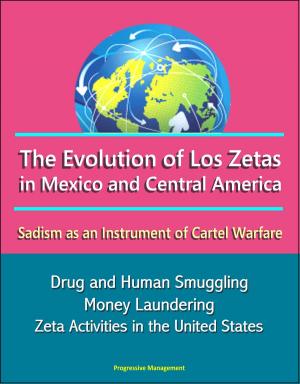Europe's Dependence on Russian Natural Gas: Perspectives and Recommendations for a Long-term Strategy, Putin, Politics, and Gazprom, Ukraine, Diversification Options
Nonfiction, Science & Nature, Technology, Power Resources, History, Asian, Russia| Author: | Progressive Management | ISBN: | 9781310421808 |
| Publisher: | Progressive Management | Publication: | March 13, 2014 |
| Imprint: | Smashwords Edition | Language: | English |
| Author: | Progressive Management |
| ISBN: | 9781310421808 |
| Publisher: | Progressive Management |
| Publication: | March 13, 2014 |
| Imprint: | Smashwords Edition |
| Language: | English |
This paper argues that the European Union must take decisive action to diversify its future energy needs away from Russian natural gas. Paradoxically, the EU's energy policy is more strategically forward-thinking and global community-minded than that of any major power, while at the same time it is mired in the parochialism of the different views of its member states. Admirably, it is the world's spokesperson for a rational policy that concerns itself with not only global climate change, but also the need for a long-term gradual weaning from hydrocarbons to renewable sources of energy. Unfortunately, the strategy of some member states to meet energy needs over the next 30-40 years, during what will be a likely be a dramatic transition period in the evolution of energy technology, seems to be based on the premise that Russia is not only mutually dependent on its European partners, but also will continue to act in a reliable manner and not exploit its increasing monopoly position, particularly in the natural gas markets. This would be an unwise policy to follow, even if Russia were the most liberal of democracies. Given Russia's uncertain future, and the demonstrated fact that it has been systematically reorganizing the entire Eurasian gas market from production all the way down to local distribution under its state-controlled agent, Gazprom, it is totally unrealistic to expect benign treatment from such a monopoly.
Topics and subjects covered include: Gazprom, Putin, Ukraine, Sakhalin, Nord Stream, Rosneft, Yukos, RosUkrEnergo, Pipelines, LNG, NEGP.
The European Union 27 currently rely on Russia for almost 38% of their imported natural gas; this dependency will become significantly greater if European states implement their currently formulated energy policies. With plans to phase out nuclear power in several European countries, the EU goal to reduce coal consumption thereby lowering greenhouse gas emissions, and the depletion of domestic sources of gas, reliance on Russia will rise to 50 to 60% of all gas imports within the next two decades if different energy policies are not adopted. The EU and greater Europe will soon find themselves in an extremely dangerous position due to the ever-increasing dependence on Russian natural gas. These countries must work together now to produce a coherent diversification strategy.
Chapter 1 - Russian and the European Natural Gas Market * Introduction * Why Natural Gas is so critical in the Energy Mix * Fragmentation of Pricing and the European Natural Gas Market * Europe's Increasing Reliance on Imported Hydrocarbons * Europe's Energy Dependence on Russia * The Effect on the European Market of Opening Pipelines to China * Russian Gas versus Oil * The Possibility of a Gas Cartel * Chapter 2 - Gazprom and the Russian Strategy * Gazprom * Putin, Politics, and Gazprom * Ukraine - An Example * Permission to Monopolize the Market * Sakhalin 2 * Kovykta * Gazprom's Distribution Portfolio and the Energy Charter * Russian Imperial Thinking * Chapter 3 - Counter Arguments * China - Not a Desirable Partner * A New Energy Source * Control of Central Asian Gas Supplies to Europe * Russia will not Produce * Chapter 4 - Recommendations * Diversification of Gas Imports - Pipelines: * The Nord Stream as an Example of the EU's Lack of Solidarity * A Trans Caspian Sea Gas Pipeline * Pipelines from North Africa * Diversification of Gas Imports - LNG * Diversification of Types of Energy * Renewables * Nuclear Power * "Clean Coal" and other New Technologies * Investment in Power Generation outside the EU * Conclusions
This paper argues that the European Union must take decisive action to diversify its future energy needs away from Russian natural gas. Paradoxically, the EU's energy policy is more strategically forward-thinking and global community-minded than that of any major power, while at the same time it is mired in the parochialism of the different views of its member states. Admirably, it is the world's spokesperson for a rational policy that concerns itself with not only global climate change, but also the need for a long-term gradual weaning from hydrocarbons to renewable sources of energy. Unfortunately, the strategy of some member states to meet energy needs over the next 30-40 years, during what will be a likely be a dramatic transition period in the evolution of energy technology, seems to be based on the premise that Russia is not only mutually dependent on its European partners, but also will continue to act in a reliable manner and not exploit its increasing monopoly position, particularly in the natural gas markets. This would be an unwise policy to follow, even if Russia were the most liberal of democracies. Given Russia's uncertain future, and the demonstrated fact that it has been systematically reorganizing the entire Eurasian gas market from production all the way down to local distribution under its state-controlled agent, Gazprom, it is totally unrealistic to expect benign treatment from such a monopoly.
Topics and subjects covered include: Gazprom, Putin, Ukraine, Sakhalin, Nord Stream, Rosneft, Yukos, RosUkrEnergo, Pipelines, LNG, NEGP.
The European Union 27 currently rely on Russia for almost 38% of their imported natural gas; this dependency will become significantly greater if European states implement their currently formulated energy policies. With plans to phase out nuclear power in several European countries, the EU goal to reduce coal consumption thereby lowering greenhouse gas emissions, and the depletion of domestic sources of gas, reliance on Russia will rise to 50 to 60% of all gas imports within the next two decades if different energy policies are not adopted. The EU and greater Europe will soon find themselves in an extremely dangerous position due to the ever-increasing dependence on Russian natural gas. These countries must work together now to produce a coherent diversification strategy.
Chapter 1 - Russian and the European Natural Gas Market * Introduction * Why Natural Gas is so critical in the Energy Mix * Fragmentation of Pricing and the European Natural Gas Market * Europe's Increasing Reliance on Imported Hydrocarbons * Europe's Energy Dependence on Russia * The Effect on the European Market of Opening Pipelines to China * Russian Gas versus Oil * The Possibility of a Gas Cartel * Chapter 2 - Gazprom and the Russian Strategy * Gazprom * Putin, Politics, and Gazprom * Ukraine - An Example * Permission to Monopolize the Market * Sakhalin 2 * Kovykta * Gazprom's Distribution Portfolio and the Energy Charter * Russian Imperial Thinking * Chapter 3 - Counter Arguments * China - Not a Desirable Partner * A New Energy Source * Control of Central Asian Gas Supplies to Europe * Russia will not Produce * Chapter 4 - Recommendations * Diversification of Gas Imports - Pipelines: * The Nord Stream as an Example of the EU's Lack of Solidarity * A Trans Caspian Sea Gas Pipeline * Pipelines from North Africa * Diversification of Gas Imports - LNG * Diversification of Types of Energy * Renewables * Nuclear Power * "Clean Coal" and other New Technologies * Investment in Power Generation outside the EU * Conclusions















